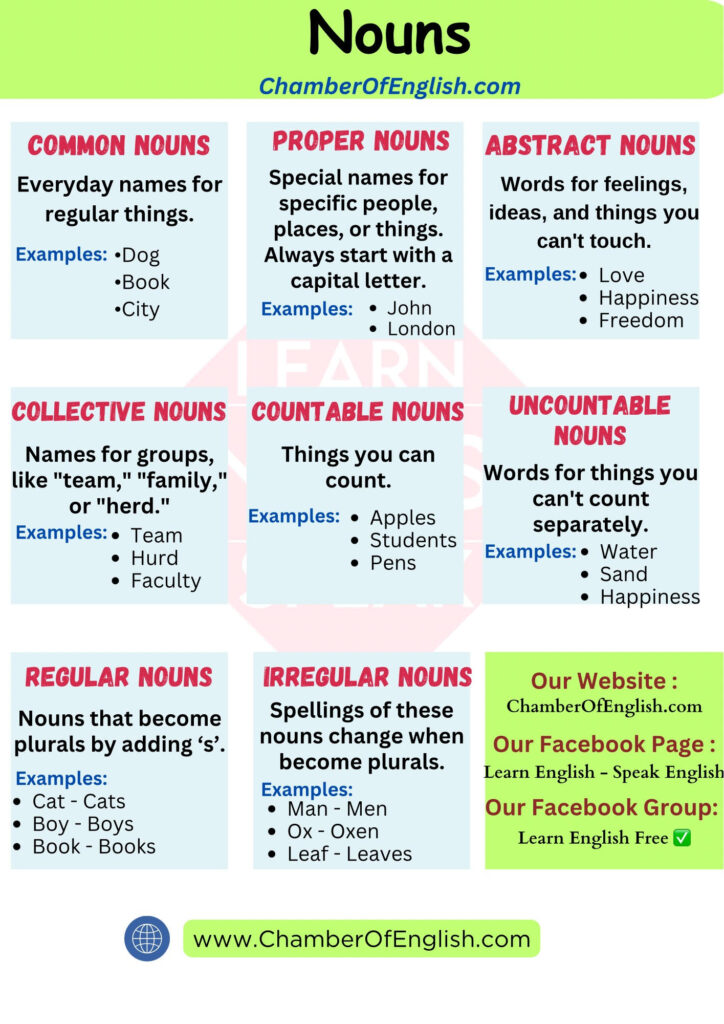Introduction:
Nouns are the foundation of any language, including English. Imagine a world without nouns – we wouldn’t be able to talk about people, places, things, or ideas! In simple terms, nouns are words that name persons, places, things, or concepts. Let’s dive into the different types of nouns that make up our language.
Types of Nouns:
1. Common Nouns: Common nouns are the everyday names we use for ordinary things. They don’t require capitalization unless they begin a sentence. For example, “dog,” “book,” and “city” are common nouns.
2. Proper Nouns: Proper nouns refer to specific people, places, or things and always begin with a capital letter. Examples include “John,” “London,” and “Harry Potter.”
3. Abstract Nouns: Abstract nouns represent ideas, feelings, or qualities that can’t be seen or touched. They express concepts like “love,” “happiness,” and “freedom.”
4. Collective Nouns: Collective nouns refer to groups of things or people. They represent a collection as a single unit. “Team,” “family,” and “herd” are examples of collective nouns.
5. Countable Nouns: Countable nouns are things that can be counted individually. They can be singular or plural. For instance, “apple” can be one or many “apples.”
6. Uncountable Nouns: Uncountable nouns, on the other hand, represent things that can’t be counted as separate units. They usually refer to substances or abstract concepts. “Water” and “happiness” are examples.
7. Regular Nouns: Regular nouns follow a simple pattern when forming their plural forms, usually by adding “s” or “es.” For instance, “cat” becomes “cats.”
8. Irregular Nouns: Irregular nouns don’t follow the typical pattern when forming their plurals. For example, “man” becomes “men” and “child” becomes “children.”
By understanding the different types of nouns, you’ll be better equipped to communicate effectively in English. In the next articles, we’ll explore each type of noun in detail, providing you with examples and practical insights to enhance your language skills.
Stay tuned for more engaging lessons on nouns, and remember, even the simplest words like nouns play a crucial role in making language come alive.
Follow us on our Facebook page: Learn English – Speak English




